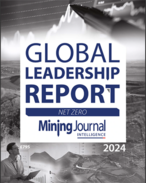This article is 3 years old. Images might not display.
BHP confirmed a contractor working in its Pilbara rail team returned a positive PCR test over the weekend.
"A second contractor working in BHP's rail team in the Pilbara has tested positive for COVID-19," a spokesperson said.
"This person was a close contact of the initial positive case and has been in isolation since [Sunday]. They have not reported any symptoms.
"Contact tracing and deep cleaning at site is continuing, and other close and casual contacts remain in isolation as a precaution."
The spokesperson said everyone impacted, understood to be about 80 workers, was being fully supported during their isolation period.
The number of close contacts has prompted calls for immediate changes to WA's isolation and close contact rules.
On Friday, the WA government announced updated isolation requirements for when the state reaches a high case load.
Close contacts will be redefined as a household member or intimate partner of a COVID-19 case or someone who had more than 15 minutes of maskless contact with a positive case or spent more than two hours in a small room.
The isolation period will be cut from 14 days to seven days.
The new rules will only take effect in a "high caseload environment" but the government has declined to specify what sort of numbers would be the trigger.
"CME and its member companies would welcome any opportunity to introduce the isolation and close contact protocols announced last week by the WA government sooner rather than later," Chamber of Minerals and Energy of WA chief executive Paul Everingham said.
"As evidenced by current COVID-19 cases on WA mine sites, those protocols will allow operators to respond to positive cases in a way that prioritises the health and safety of our workforce while also providing for continuity of operations."
Aside from BHP, 29Metals, Alcoa and Albemarle Corp have all reported COVID-19 cases across WA sites in the past few days.
Rio Tinto had a narrow miss two weeks ago when two cases of COVID were detected via its screening processes at Perth Airport.
"While vaccine mandates, RAT/PCR testing regimes for fly-in, fly-out workers and isolation arrangements are strong, the risk is that increased worker and contact absenteeism affects producing assets as well as timelines and budgets for new mine projects," analysts from UBS said overnight.
"Most of our coverage universe has operations in WA and so are potentially exposed to the rising COVID spread.
"From a market perspective, any negative production impacts could be partly offset by higher commodity prices."























